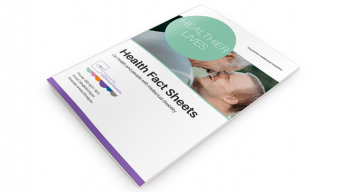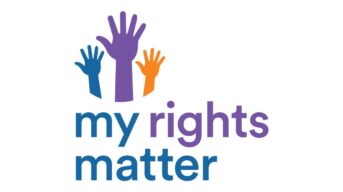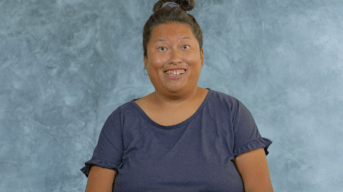Medicine for health, not control
NDIS Quality and Safeguards Commission along with Aged Care Quality and Safety Commission and the Australian Commission on Safety and Quality in Health Care have joined up to release a significant statement about the misuse of medication to control behaviour.
In this video, Maria and Laura explain how we should do this and why it is so important.
Find out more on the NDIS Quality and Safeguards Commission website.
Transcript
Laura: People with disability and older people are sometimes given medication to control them.
Maria: I’m the parent of…I keep going to say young man but he’s not quite so young anymore, he’s 46 years of age, who was initially at birth almost diagnosed with an intellectual disability, subsequently an autistic spectrum disorder of a very high range.
Laura: People are often given these medicines because it makes life easier for the people around or because it makes other peoples lives easier.
Maria: He was a very difficult, gorgeous young man. He was very destructive. He punched holes in walls, tore down curtains and would have hung from chandeliers if I had any.
Laura: Giving medicine to control someone is not the answer.
Maria: They decided that you know Valium would be the order of the day. Absolutely uncontrollable. Then they tried something else.
Laura: Some health people do not listen to the person with a disability. They might think they know best for the person.
Maria: He gets agitated. It’s a certain level of behaviour. He gets very distressed by certain situations like too much noise or too much colour and activity. It goes back to his autism.
Laura: There are better ways of doing things than just giving people medicine.
Maria: If you look properly and you know him and it’s properly recorded via a behaviour support plan, then he is managed without any additional medication.
Laura: Three commissions have made a big statement about this problem. They looked at people with disability, older people, people with lots of health needs.
Maria: This is coming from three valued organisations that are now responding to an issue that has been dear to my heart for years.
Laura: What they are saying is really important for people with a disability and older people.
Maria: People in aged care get sidelined and medicated because its convenient for the staff. And the same thing happens in residential care for people with a disability often. It’s easy for the staff if you give them a pill and they sit there quiet. It would be wonderful if that was taken out of the world and people were treated as human beings with their quirks and foibles and then learn to manage as humans.
Laura: Work as a team. We need good health care and good support, not more medicine.



 1800 424 065
1800 424 065 
















